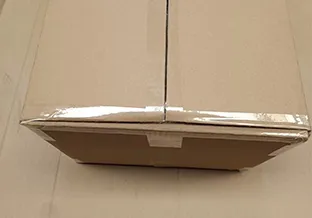
Benefits of Using a Cast Iron Baking Pan for Your Favorite Recipes
The Versatility and Benefits of Cast Iron Baking Pans
When it comes to cookware that offers exceptional performance and durability, cast iron baking pans stand out in many kitchens. They have been a staple in cooking for centuries and continue to be a favorite for home cooks and professional chefs alike. The reasons for their popularity are numerous, ranging from their remarkable heat retention to their ability to develop a natural non-stick surface over time.
Heat Retention and Distribution
One of the most significant advantages of cast iron baking pans is their unparalleled heat retention and distribution. Cast iron is known for its ability to hold heat exceptionally well, making it perfect for baking. Whether you are whipping up a batch of cornbread, roasting vegetables, or making a deep-dish pizza, cast iron pans provide an even heat that promotes uniform cooking. This consistency helps prevent hot spots, which can lead to unevenly cooked food.
Versatility in Cooking Methods
Cast iron baking pans are extremely versatile. They can seamlessly transition from stovetop to oven, allowing you to sear meats before placing them in the oven for roasting or baking. This functionality means fewer dishes to clean, providing an added convenience for busy cooks. Furthermore, many cast iron pans are compatible with induction cooktops, making them suitable for various kitchen setups.
In addition to their use in the oven, cast iron pans can also be used on the grill or over an open flame, making them ideal for outdoor cooking. Whether you're camping or hosting a barbecue, you can create delicious baked goods or memorable meals without the need for specialized equipment. This adaptability makes cast iron a must-have for any culinary enthusiast.
Non-Stick Properties and Seasoning
cast iron baking pan

Another benefit of cast iron baking pans is their ability to develop a natural non-stick surface when properly seasoned. Seasoning is the process of coating the pan with oil and heating it to create a thin layer of polymerized fat that bonds to the iron. With regular use and proper care, this seasoning improves over time, making the pan increasingly non-stick. This feature allows for easy food release and simplifies cleanup.
Moreover, cooking with a well-seasoned cast iron pan can enhance the flavors of your dishes. The oils and fats used in the seasoning process can introduce a depth of flavor that cannot be matched by non-stick alternatives. Additionally, cast iron pans can withstand high temperatures, making them ideal for recipes that require searing or cooking at high heat without the risk of damaging the surface.
Durability and Longevity
Cast iron pans are renowned for their durability. With proper care, a cast iron baking pan can last for generations, making it a worthwhile investment. Unlike non-stick pans that can scratch and wear out over time, cast iron is practically indestructible. This longevity not only saves money in the long run but also reduces waste, aligning with sustainable cooking practices.
Caring for Your Cast Iron Baking Pan
To ensure your cast iron baking pan remains in top condition, it’s important to care for it properly. After each use, clean it with warm water and a gentle brush or sponge, avoiding harsh detergents. Dry it thoroughly to prevent rust, and apply a thin layer of cooking oil before storing it. This simple maintenance routine will keep your cast iron pan well-seasoned and ready for your next culinary adventure.
Conclusion
In summary, cast iron baking pans offer a multitude of benefits, including superior heat retention, versatility in cooking methods, natural non-stick properties, and unparalleled durability. Whether you are a novice cook or an experienced chef, investing in a cast iron baking pan will elevate your kitchen experience and help you create delicious meals for years to come. Embrace the tradition and versatility of cast iron cookware, and discover the endless possibilities it brings to your culinary creations.
-
Season Cast Iron Perfectly with GPT-4 Turbo TipsNewsAug.01,2025
-
High Quality Cast Iron Cookware - Baixiang County Zhongda MachineryNewsAug.01,2025
-
Premium Cast Iron Pan: Durable & Perfect HeatNewsAug.01,2025
-
High Quality Kitchen Durable Black Round Cast Iron Cookware Pancake Crepe Pan-Baixiang County Zhongda Machinery Manufacturing Co., Ltd.NewsAug.01,2025
-
Cast Iron Cookware - Baixiang County Zhongda Machinery | Nonstick, Heat ResistanceNewsAug.01,2025
-
High Quality Kitchen Durable Black Round Cast Iron Cookware - Baixiang County Zhongda Machinery | Non-Stick, Heat Retention, DurableNewsJul.31,2025


